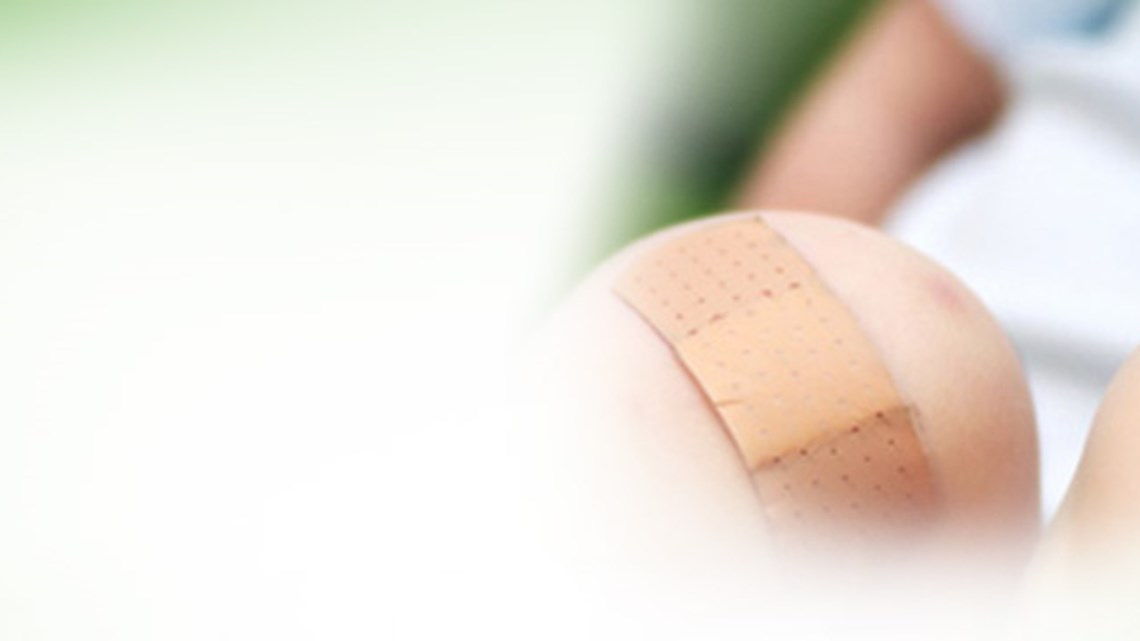Keeping cuts, abrasions and other minor wounds clean and covered helps to stop illness-causing germs getting inside your body and causing an infection.

What You Need to Know
When our skin is healthy and intact, it provides a natural barrier to germs. But, if our skin is broken, for example due to a cut, graze or bite, it is easy for germs to enter our bodies through the wound and cause an infection. Wounds can get infected when:
- germs that normally live harmlessly on our bodies enter the wound from the surrounding skin
- the wound gets contaminated with germs from dirt, animals or people, during injury
- airborne germs land on a wound
- a wound is touched with unwashed hands or other things that are contaminated with germs.
Although most wound infections are mild, infected wounds take much longer to heal and are more likely to scar. And, occasionally the germs may spread into the blood, causing septicaemia (blood poisoning), which can become serious if not treated by a doctor.
If you’ve cut or wounded yourself, you may also need a tetanus jab (vaccination) if the injury has broken your skin and you aren’t up to date with your tentanus protection. Tetanus is a serious condition – if treated, it’s usually a short-term condition, but without treatment, it can become serious. You may have a higher risk of being infected with tetanus if the wound is deep or gets dirty with soil or manure. However, even small wounds, such as a prick from a thorn, can allow enough bacteria to get into your body to cause tetanus so make sure your vaccination is up-to-date.
If in doubt, check with your doctor.
Treating Minor Wounds
Make sure you have a well-stocked first aid kit containing an antiseptic and some plasters, and use it to treat small cuts, grazes, insect bites, stings and other minor wounds at home.
To help stop minor wounds getting infected:
- Avoid touching wounds unnecessarily or picking at scabs.
- Always clean your hands before and after touching a wound using an antimicrobial soap, or an alcohol-based hand sanitiser.
- Carefully clean the wound with clean, running water, an antiseptic wash, or correctly diluted antiseptic liquid.
- Gently dry the skin around the wound using a clean tissue or gauze.
- Apply an antiseptic cream or ointment to the wound to help kill any remaining germs.
- Protect the wound from dirt and germs by covering it with an adhesive plaster or sterile dressing.
- Change dressings and plasters regularly, including whenever they are wet, and put used ones in a bin.
- Remember to wash your hands afterwards.
If a wound won’t stop bleeding or is serious, you will need to seek medical help straight away.
Chapped and Dry Skin
Dry, chapped skin occurs when there is a loss of the skin’s natural oils. The skin can become rough and start to crack, leaving it prone to infection. Chapped skin is often associated with extreme temperatures or windy conditions and mostly affects the exposed body parts, such as the lips, face and hands. To soothe and protect chapped skin, try applying a petroleum jelly.
